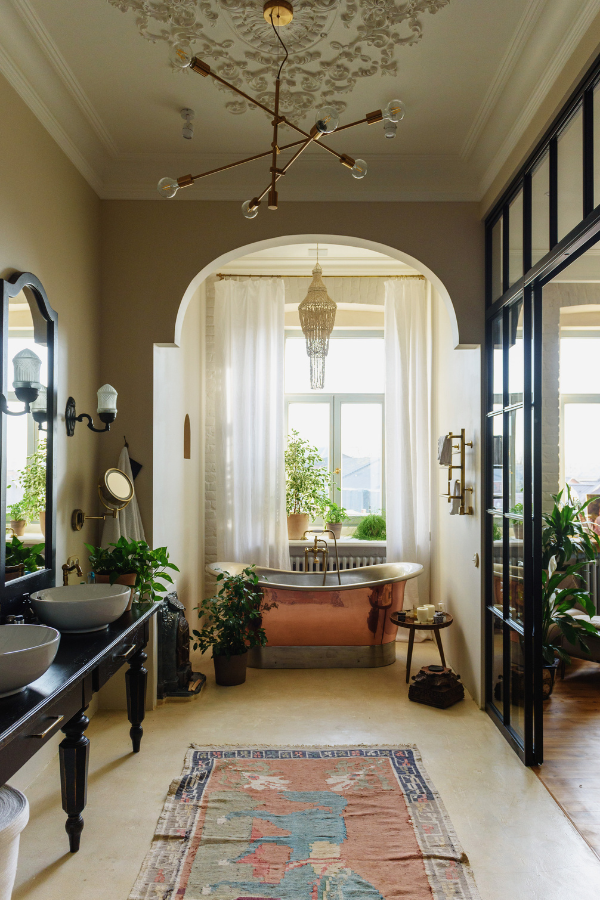

DesignDash Guide: Buying Property in Portugal as an American
Summary
Buying property in Portugal has become increasingly popular among American expats due to its mild climate, lower cost of living, and rich culture. This guide covers everything from understanding the local real estate market, legal requirements, and financial considerations to the buying process, post-purchase management, and cultural adjustments. Key topics include popular regions for expats, the Golden Visa and D7 Visa programs, and ongoing property costs. Portugal offers a welcoming environment for women relocating, retiring, or living part-time, with regions like Lisbon, Porto, Algarve, and the Silver Coast catering to diverse lifestyles.
Reflection Questions
- What are the key factors that make Portugal an appealing destination for your relocation or retirement plans?
- How do the different regions of Portugal (Lisbon, Porto, Algarve, Silver Coast) align with your personal lifestyle and needs?
- What legal and financial preparations do you need to make before purchasing property in Portugal?
Journal Prompt
Imagine your life in Portugal after relocating or retiring there. Describe a typical day in your chosen region, focusing on the activities you would enjoy, the community you would interact with, and how the new environment supports your personal and professional goals. Reflect on how this new chapter in Portugal aligns with your long-term aspirations and enhances your overall well-being.
With its mild Mediterranean climate and comparably lower cost of living, buying property in Portugal has become an increasingly popular choice for American expats seeking a blend of beautiful landscapes, rich culture, and a relaxed lifestyle. The process of purchasing property in a foreign country can seem daunting, but understanding the local real estate market, legal requirements, and financial considerations can make it a smooth and rewarding experience. This guide will walk you through everything you need to know about buying property in Portugal as an American expat, from the initial property market search to settling into your new home.
Why Buy Property in Portugal as an American?


Firstly, the country boasts a mild Mediterranean climate, offering plenty of sunshine and pleasant weather year-round, which is a significant draw for those looking to escape harsher climates. Portugal’s diverse and stunning landscapes, from the golden beaches of the Algarve to the rolling vineyards of the Douro Valley, provide a picturesque backdrop for a relaxed and outdoor-oriented lifestyle.
Economically, Portugal offers a lower cost of living compared to many parts of the United States, allowing Americans to enjoy a higher quality of life for less money. Real estate prices, while rising, are still relatively affordable, making the Portugal real estate market attractive for property investment. As such, for Americans in Portugal, buying property can be an excellent financial investment.
Culturally, Portugal is rich in history, with vibrant cities like Lisbon and Porto offering a mix of traditional charm and modern amenities. The country is known for its warm and welcoming people, making it easier for expats to integrate into local communities.
Additionally, Portugal has favorable visa programs for property buyers, such as the Golden Visa, which grants residency to non-EU citizens who make significant investments in the country. This program, along with other residency options, provides a clear path for Americans looking to live in Portugal either part-time or permanently.
Lastly, Portugal’s high-quality healthcare system, excellent infrastructure, and robust public transportation network contribute to its appeal. The country is also strategically located, offering easy travel access to other European destinations.
Not sure where to stay while exploring the Portuguese real estate market? Perched on the cliffs of Southern Portugal, W Algarve is the region’s first lifestyle luxury hotel. It elegantly embodies the Algarve’s deep connection to the sea and its rich maritime history with antique furniture, gorgeous grounds, and views of the Benagil Caves through W Lounge.
Understanding the Portuguese Real Estate Market


The Portuguese real estate market has experienced significant growth over the past decade, emerging as a hotspot for both domestic and international buyers. The country’s stable economy, combined with attractive property prices and high rental yields, has made it a sought-after destination for investors.
Portugal’s commitment to improving infrastructure and public services has further enhanced its appeal. The real estate market is diverse, offering everything from modern apartments in bustling cities to charming villas in quaint coastal towns. This variety caters to different lifestyles and budgets, making it easier for prospective buyers to find their ideal property.
Popular Regions for Expats: Lisbon, Porto, Algarve, Silver Coast


Several regions in Portugal have become particularly popular among expats, each offering unique attractions. Lisbon, the capital city, is known for its vibrant cultural scene, historic architecture, and thriving tech industry, making it ideal for those seeking a dynamic urban lifestyle. Porto, famous for its port wine and picturesque riverfront, offers a blend of traditional and contemporary living with a more relaxed pace.
The Algarve, with its stunning beaches, golf courses, and warm climate, is a favorite among retirees and holidaymakers. The Silver Coast, less commercialized but equally beautiful, provides a quieter alternative with its dramatic coastline and medieval towns. These regions offer a variety of settings to suit different preferences and needs.
Market Trends and Portuguese Property Pricing Overview


Recent trends in the Portuguese real estate market indicate a steady increase in property prices, driven by high demand and limited supply, particularly in major cities and popular coastal areas. Despite this growth, Portugal remains relatively affordable compared to other Western European countries. In Lisbon and Porto, prices have surged, reflecting their status as key investment hubs.
The Algarve and Silver Coast also see rising property values, particularly for premium properties and those with scenic views. Rental yields are strong, especially in tourist-heavy areas, making property investment lucrative. Buyers should be aware of the competitive nature of the market and be prepared for potential bidding wars, especially for desirable properties in prime locations.
Fuel your creative fire & be a part of a supportive community that values how you love to live.
subscribe to our newsletter
Legal Requirements and Regulations
Americans are fully eligible to buy property in Portugal with no restrictions. Portugal’s real estate market is open to foreign buyers, and American citizens can purchase property just as easily as Portuguese nationals. The process is straightforward, though it involves several legal steps to ensure compliance with local regulations.
This openness to foreign investment has been a significant factor in the country’s growing popularity among American expats. Prospective buyers should be aware of the legal requirements and prepare to engage with local authorities and professionals to facilitate a smooth transaction.
Types of Property Ownership: Freehold, Leasehold


In Portugal, property ownership typically falls into two categories: freehold and leasehold. Freehold ownership, the most common type, means that the buyer owns the property and the land it stands on outright, with full rights to use, sell, or lease it. Leasehold ownership, on the other hand, grants the buyer rights to the property for a specified period, typically ranging from 20 to 99 years, after which ownership reverts to the freeholder. Leasehold properties are less common in Portugal and are usually found in certain types of developments or historical areas. Understanding these ownership types is crucial for buyers to make informed decisions based on their long-term plans and investment goals.
Key Legal Steps and Documentation: NIF (Número de Identificação Fiscal), Property Registration, Tax Number
Purchasing property in Portugal involves several key legal steps and documentation. The first requirement for any buyer is obtaining a NIF (Número de Identificação Fiscal), which is a tax identification number necessary for all financial transactions in Portugal, including property purchases. Next, buyers must engage in property registration to ensure that the property is correctly recorded in their name in the national land registry. This step is crucial to establish legal ownership and protect against any future disputes.
Additionally, buyers need to be aware of the various taxes involved, such as the property transfer tax (IMT), stamp duty, municipal property tax, initial property purchase tax, and annual property taxes (IMI). Engaging a local lawyer is highly recommended to navigate these legalities, ensure compliance, and safeguard the buyer’s interests throughout the process. You might also owe real estate agent fees.
Financial Considerations for Americans Buying Property in Portugal


When buying property in Portugal, understanding the full cost breakdown is essential to avoid any financial surprises. The purchase price is the most significant expense, but additional costs can add up quickly. Taxes are a major component, including the property transfer tax (IMT), which varies depending on the property’s value and type.
Buyers must also pay stamp duty, typically around 0.8% of the purchase price. Legal fees are another important consideration, as engaging a lawyer to handle the transaction and ensure compliance with local regulations is highly recommended. Additionally, buyers should budget for notary fees, registration fees, and any other administrative costs related to the transfer of property ownership. These costs can collectively amount to approximately 7-10% of the property’s purchase price, so thorough financial planning is crucial.
Financing Options: Mortgages for Non-Residents, Banks, Financial Institutions
Non-residents, including Americans, have several financing options available when purchasing property in Portugal. Portuguese banks and financial institutions offer mortgages to foreign buyers, typically covering 60-70% of the property purchase price. The loan terms can vary, with common repayment periods ranging from 20 to 30 years.
Interest rates are generally competitive, but they can be affected by the buyer’s financial profile and the property’s location. To secure a mortgage, buyers must provide proof of income, tax returns, bank statements, and a valid NIF. Engaging with a mortgage broker who understands the Portuguese market can be beneficial in navigating the available options and securing the best terms.
Currency Exchange Considerations and Transferring Funds
Currency exchange and transferring funds are critical aspects of purchasing property in Portugal, especially for American buyers dealing with currency conversion from USD to EUR. Exchange rates can significantly impact the total cost of the purchase, so timing and strategy are key. Utilizing the services of a currency exchange specialist can help buyers secure more favorable rates and manage the timing of transfers.
It’s important to consider any fees associated with international transfers and to ensure compliance with anti-money laundering regulations. Opening a Portuguese bank account can facilitate the transfer of funds and simplify ongoing financial transactions, such as paying local taxes and utility bills. Properly managing currency exchange and fund transfers can result in substantial savings and smoother financial transactions during the property purchase process.
How to Buy Property in Portugal Step-by-Step


The first step in the property buying process in Portugal is finding the right property that meets your needs and preferences. This can be done through various methods. Engaging local real estate professionals is highly recommended, as they have in-depth knowledge of the market and can provide valuable insights into the best areas and properties available.
Real estate agents can also help navigate the legal and administrative processes. Online property portals are another useful tool, offering a wide range of listings that you can browse from anywhere in the world. Websites like Idealista, Casa Sapo, and Imovirtual are popular options.
Once you have identified potential properties, scheduling property viewings is crucial. Visiting properties in person allows you to assess their condition, location, and suitability. It’s also an opportunity to get a feel for the neighborhood and surrounding amenities.
Making an Offer and Negotiating the Property Price
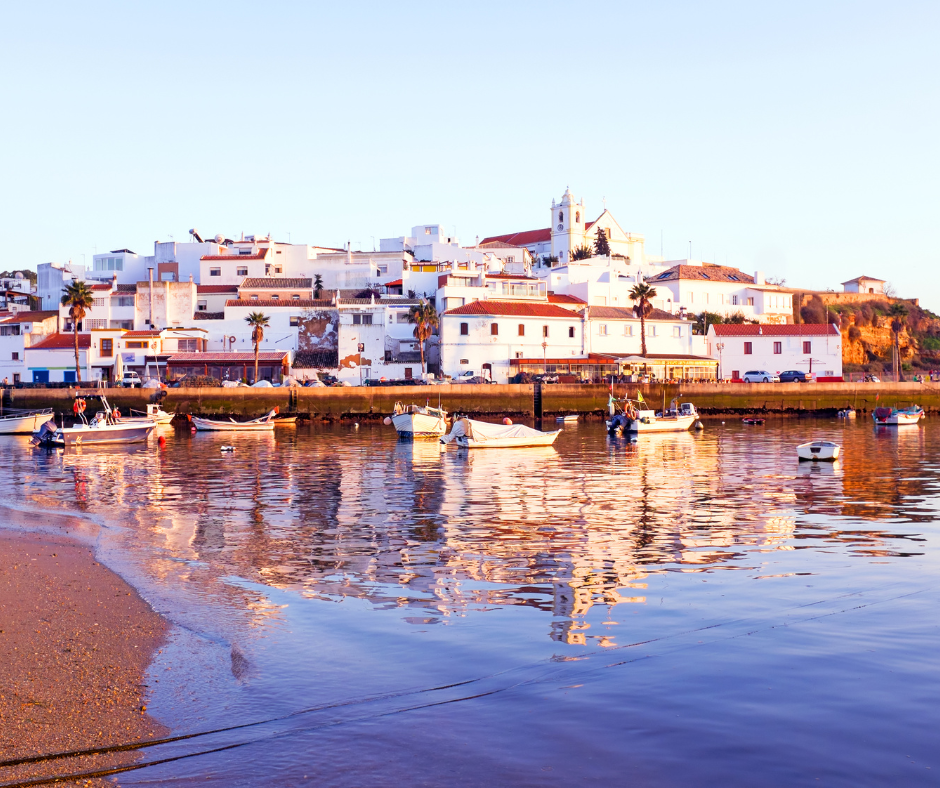

After finding a property that meets your criteria, the next step is making an offer. This involves presenting a formal offer to the seller, which can be done directly or through your real estate agent. Negotiation is often a part of this process, as you and the seller discuss the price and terms of the sale.
It’s important to be prepared to negotiate and to have a clear understanding of the property’s market value. Being flexible and willing to compromise can be advantageous. Once an agreement is reached, it’s standard practice to provide a small deposit to show your commitment to the purchase. This deposit is usually refundable if the sale does not proceed for reasons outlined in the agreement.
Due Diligence: Property Inspections, Legal Checks
Due diligence is a critical phase in the property buying process, ensuring that you are making a sound investment. This involves conducting thorough property inspections to check for any structural issues, defects, or maintenance needs. Hiring a professional surveyor or inspector is advisable for this task.
Concurrently, legal checks are performed to verify the property’s legal status. This includes confirming the property’s ownership, checking for any outstanding debts or liens, and ensuring that all necessary permits and documentation are in order. Engaging a lawyer who specializes in Portuguese real estate law is essential to navigate these checks and protect your interests.
Signing the Promissory Contract (Contrato de Promessa de Compra e Venda)
Once due diligence is satisfactorily completed, the next step is signing the Promissory Contract (Contrato de Promessa de Compra e Venda). This contract is a legally binding agreement between the buyer and seller outlining the terms and conditions of the sale. It typically includes details such as the agreed price, payment schedule, and completion date.
At this stage, a larger deposit, usually around 10-30% of the purchase price, is paid by the buyer. This contract provides legal protection for both parties and sets the groundwork for the final transaction. If either party breaches the contract, there can be significant financial penalties. Be sure to contact your local tax office before finalizing the agreement.
Completing the Purchase: Final Deed (Escritura) and Property Registration
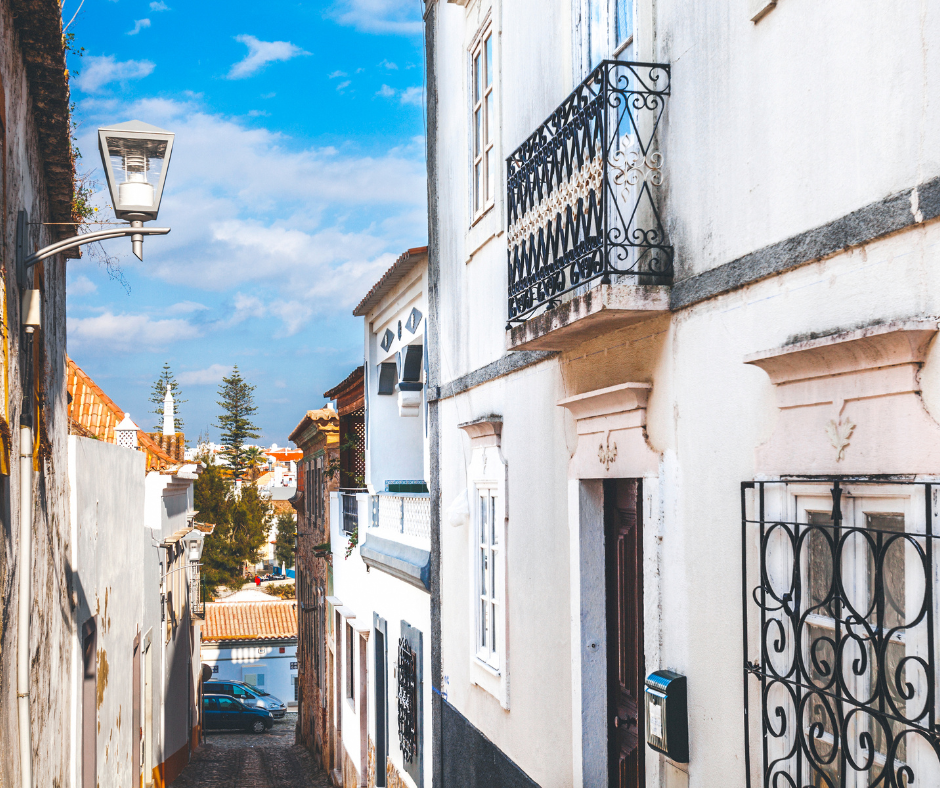

The final step in the buying process is completing the purchase, which involves signing the final deed (Escritura) and registering the property. The Escritura is signed in the presence of a notary, who verifies the identities of the parties and ensures that all legal requirements are met. The remaining balance of the purchase price is paid at this time, and the deed is officially transferred to the buyer.
Following this, the property must be registered with the local land registry office to record the new ownership. This step is crucial for securing your legal rights to the property and updating the public records. Once the registration is complete, you are officially the owner of the property.
Residency and Visa Considerations for Americans


Portugal offers several visa and residency options for property buyers, making it an attractive destination for those looking to relocate. The country’s favorable immigration policies facilitate a smooth transition for foreign investors and retirees. Property buyers can apply for temporary or permanent residency, depending on their investment and personal circumstances.
These options provide various pathways to live, work, and eventually obtain citizenship in Portugal. It’s important for prospective buyers to explore these options and determine which best suits their needs, taking into account factors such as investment amount, duration of stay, and intended use of the property.
Fuel your creative fire & be a part of a supportive community that values how you love to live.
subscribe to our newsletter
Portuguese Golden Visa Program: Requirements, Benefits, and Process
The Golden Visa program is one of the most popular residency options for non-EU citizens investing in Portuguese real estate. To qualify, applicants must make a minimum investment in property, starting at €500,000, though this amount can be reduced in certain cases, such as investing in low-density areas or properties over 30 years old.
The program offers numerous benefits to property owners, including the right to live and work in Portugal, visa-free travel within the Schengen Area, and the possibility of applying for permanent residency or citizenship after five years. The application process involves submitting required documents, proving the investment, and passing background checks. Successful applicants receive a residency permit, which is renewable every two years.
D7 Visa: Requirements and Process for Retirees and Passive Income Earners


The D7 visa is designed for retirees and individuals with a stable passive income, such as pensions or rental income. To qualify, applicants must demonstrate sufficient financial means to support themselves in Portugal. The minimum income requirements vary depending on family size, but typically start at around €7,980 per year for a single applicant. The application process involves submitting proof of income, health insurance, accommodation in Portugal, and a clean criminal record.
Once approved, the D7 visa grants temporary residency, which can be renewed and eventually lead to permanent residency or citizenship. This visa is particularly attractive for retirees looking for a cost-effective and high-quality lifestyle in Portugal.
Post-Purchase Considerations
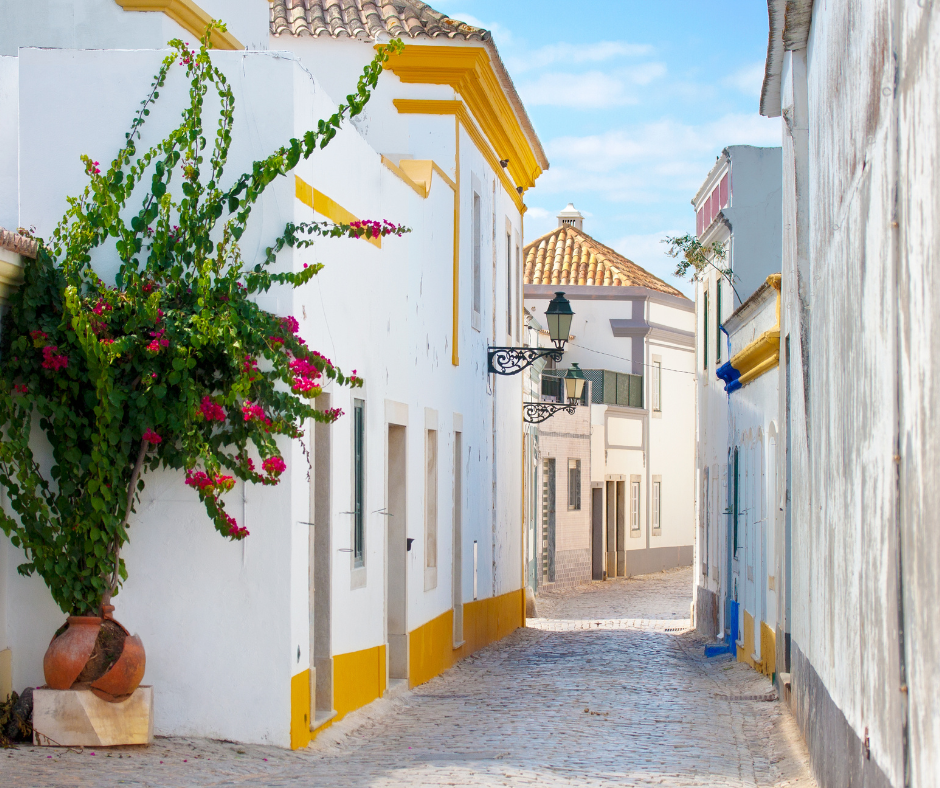

After purchasing property in Portugal, buyers must decide between self-managing the property or hiring a property management company. Self-management can be cost-effective and allows for direct control over the property. However, it can be time-consuming and challenging, especially for non-residents or those unfamiliar with local regulations and maintenance practices.
Hiring a property management company, on the other hand, offers convenience and professional expertise. These companies handle everything from tenant screening and rent collection to maintenance and legal compliance, making them an ideal choice for absentee owners or those looking for a hassle-free experience. The decision ultimately depends on the buyer’s availability, budget, and level of involvement they wish to have.
Insurance Requirements: Home Insurance, Contents Insurance
Insurance is a crucial aspect of property ownership in Portugal, providing financial protection against various risks. Home insurance covers damage to the building structure from events like fires, storms, and floods. Contents insurance, on the other hand, protects personal belongings within the property, such as furniture, electronics, and clothing, against theft or damage.
While home insurance is often mandatory, especially if the property is mortgaged, contents insurance is optional but highly recommended. Buyers should carefully assess their coverage needs and choose a comprehensive insurance policy that safeguards their investment and ensures peace of mind.
Utilities Setup: Water, Electricity, Internet, etc.
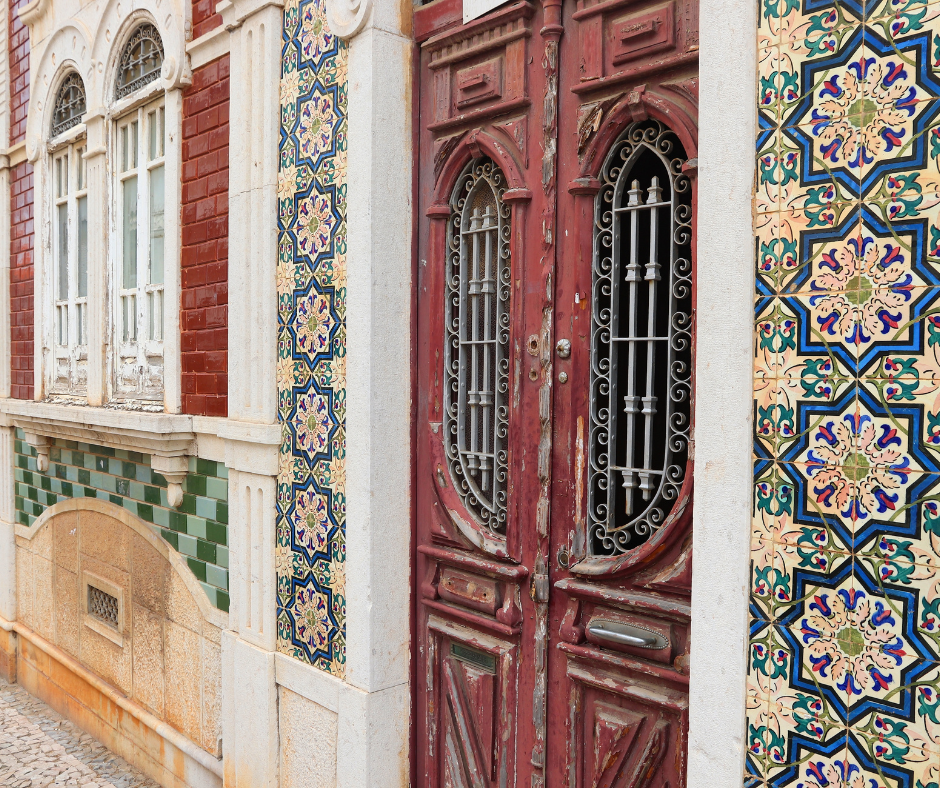

Setting up utilities is an essential step after purchasing a property in Portugal. This includes arranging for water, electricity, gas, and internet services. Buyers need to contact the respective utility companies to establish new accounts or transfer existing ones.
Required documentation typically includes proof of ownership, identification, and a NIF. The process can vary depending on the region and service provider, but most companies offer customer service in English to assist foreign buyers. Ensuring timely setup of utilities is crucial for a smooth move-in experience and to avoid any disruptions in essential services.
Maintenance and Upkeep
Regular maintenance and upkeep are vital to preserving the value and condition of the property. This includes routine tasks such as cleaning, gardening, and minor repairs, as well as periodic inspections to identify and address any potential issues. For non-resident owners, hiring a local maintenance service or property manager can ensure that the property is well-maintained in their absence.
Preventive maintenance, such as servicing heating and cooling systems and inspecting roofs and plumbing, can prevent costly repairs in the long run. Keeping the property in good condition not only enhances its value but also ensures a comfortable living environment.
Cultural and Lifestyle Adjustments for Americans


Integrating into the local community is an enriching aspect of relocating to Portugal. Learning Portuguese, even at a basic level, can significantly enhance the experience and facilitate smoother interactions with locals. Embracing Portuguese customs and social norms, such as the importance of family, the relaxed pace of life, and the appreciation for local cuisine, helps in building meaningful connections.
Participating in community events, festivals, and social gatherings is a great way to meet new people and feel more at home. Many expatriate groups and clubs also offer support and networking opportunities, easing the transition into the new culture.
Healthcare System in Portugal for Expats
Portugal has a high-quality healthcare system that is accessible to expats. The public healthcare system, Serviço Nacional de Saúde (SNS), provides comprehensive medical services at low costs, and expats can access it by registering with their local health center. Private healthcare is also available and is often chosen by those who prefer shorter waiting times and a wider choice of specialists.
Many expats opt for private health insurance to supplement the public system. Portugal’s healthcare standards are generally high, with well-trained medical professionals and modern facilities. Understanding how to navigate the healthcare system and having appropriate insurance coverage ensures access to the necessary medical care.
Education Options for Families with Children
For families moving to Portugal, understanding the education options is crucial. The Portuguese education system consists of public, private, and international schools. Public schools are free and offer a good standard of education, but the language of instruction is Portuguese. Private schools provide an alternative, often with bilingual programs, and tend to have smaller class sizes.
International schools, offering curricula such as the International Baccalaureate (IB) or British and American systems, are popular among expats due to their global standards and instruction in English. These schools can be more expensive, but they offer a smooth transition for children from different educational backgrounds and better preparation for higher education opportunities worldwide.
Answering Your FAQs About Buying Property in Portugal as an American
Can Americans easily buy property in Portugal?
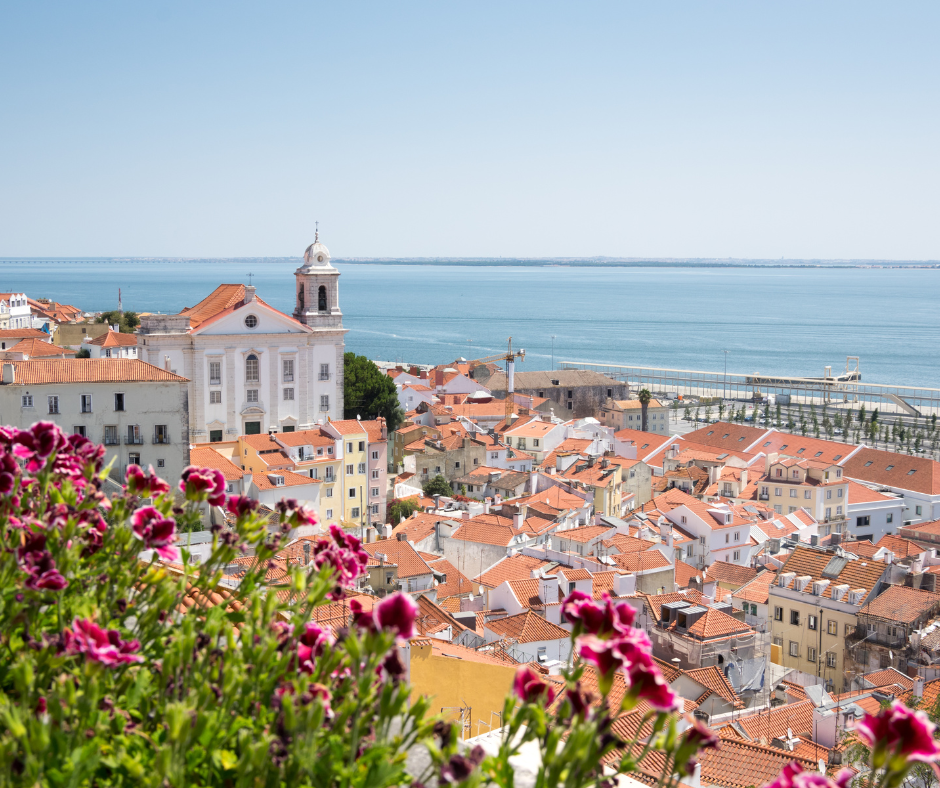

Yes, Americans can buy property in Portugal with no restrictions. The Portuguese real estate market is open to foreign buyers, making it straightforward for American citizens to invest in property in the country.
What is the Golden Visa program?
The Golden Visa program allows non-EU citizens to obtain residency in Portugal through property investment. To qualify, the minimum investment requirement is typically €500,000, though lower thresholds may apply for investments in certain areas or older properties. This program provides benefits such as visa-free travel within the Schengen Area and a pathway to permanent residency or citizenship.
What taxes do I need to consider when buying property?
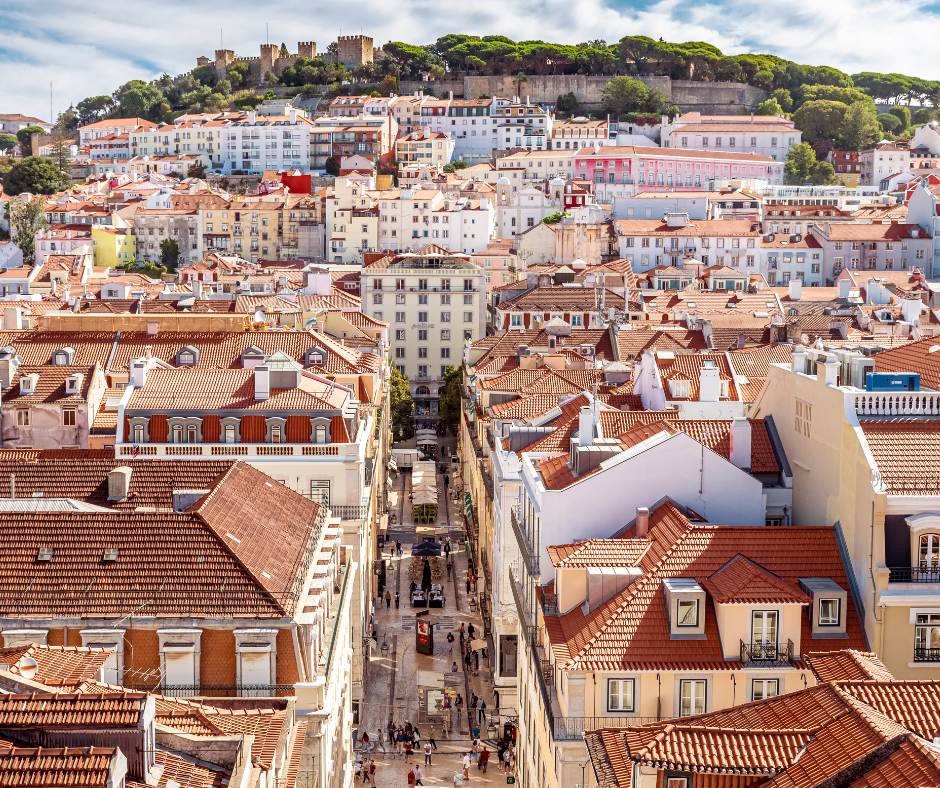

When buying property in Portugal, buyers need to consider several taxes. The property transfer tax (IMT) varies based on the property’s value and type. Additionally, buyers must pay stamp duty, generally around 0.8% of the purchase price, and annual property taxes (IMI), which depend on the property’s location and value.
Do I need to hire a lawyer?
While not legally required, hiring a lawyer is highly recommended when buying property in Portugal. A lawyer can navigate the legal aspects of the purchase, conduct due diligence, ensure compliance with local laws, and protect the buyer’s interests throughout the transaction.
Can I get a mortgage in Portugal as a non-resident?
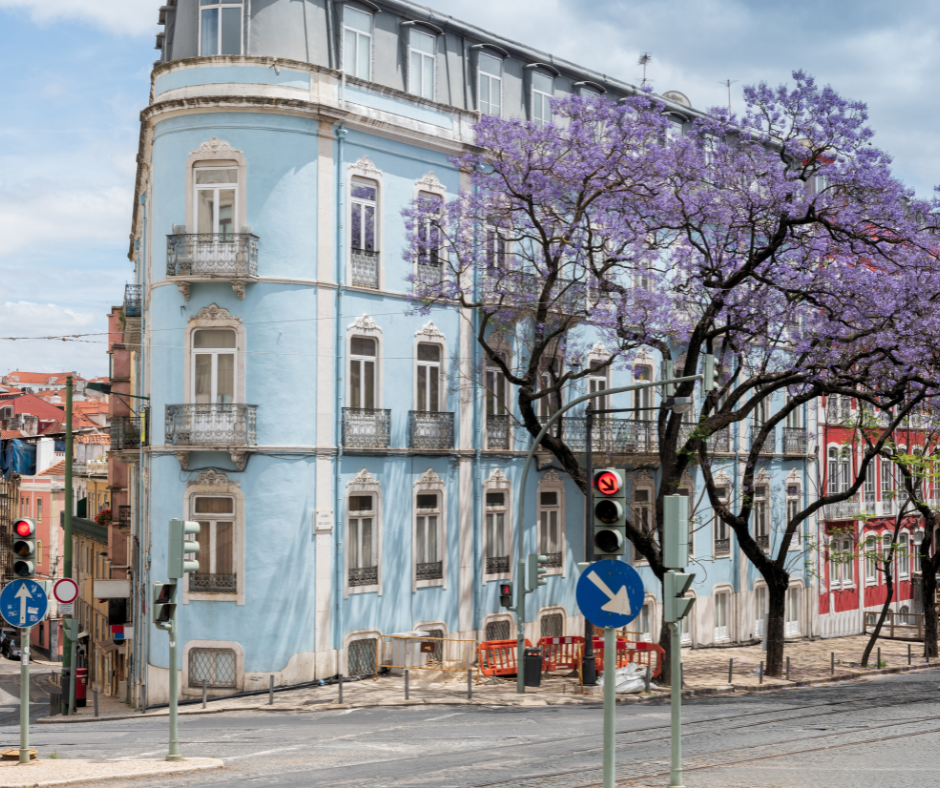

Yes, non-residents, including Americans, can obtain mortgages in Portugal. Several Portuguese banks offer mortgages to foreign buyers, typically covering 60-70% of the property’s value. The loan terms and interest rates may vary based on the buyer’s financial profile and the property’s location.
How long does the buying process take?
The buying process in Portugal can take anywhere from a few weeks to a few months. The duration depends on various factors, including the time required for due diligence, securing financing, and completing legal procedures. Efficient planning and engaging professional assistance can help expedite the process.
What is the NIF and why do I need it?
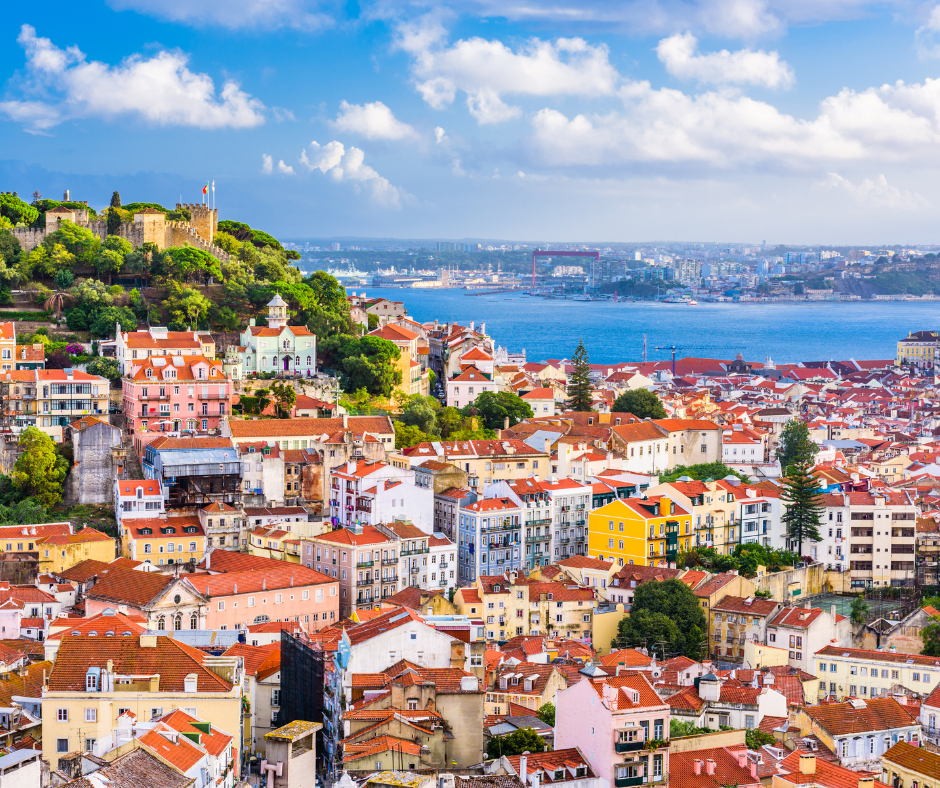

The NIF (Número de Identificação Fiscal) is a Portuguese tax number required for all financial and legal transactions in Portugal, including to purchase real estate. It is essential for opening a bank account, signing contracts, and fulfilling tax obligations. Obtaining an NIF is a crucial first step for foreign buyers.
What are the ongoing costs of owning property in Portugal?
Ongoing costs of owning property in Portugal include annual property taxes (IMI), which are based on the property’s location and value. Additionally, owners must budget for utilities (water, electricity, gas, internet), maintenance, and home insurance. These costs ensure the property’s upkeep and compliance with local regulations.
What is the capital gains tax in Portugal?
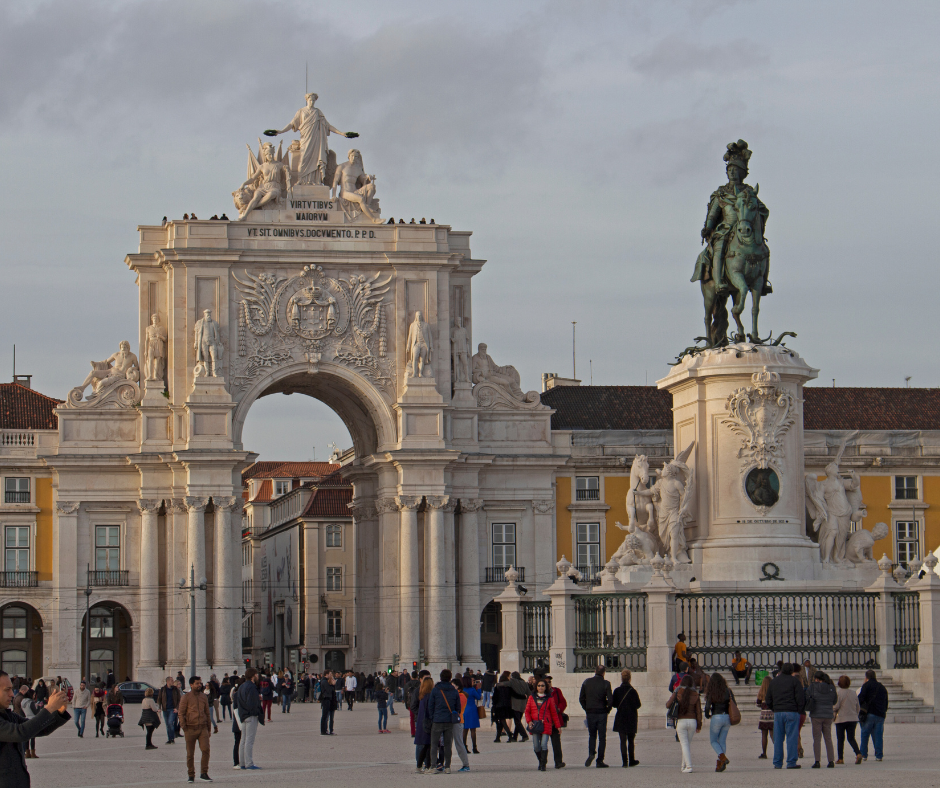

Capital gains tax in Portugal applies to the profit made from selling a property. For non-residents, the tax rate is typically 28% on the net gains of the property value or property costs. Residents are taxed on only 50% of the net gains, with the amount added to their taxable income and subject to progressive tax rates. Various deductions and exemptions may apply, such as reinvestment in another property within a specific timeframe, which can reduce the taxable amount. It is advisable to consult with a tax advisor to understand the specific implications and optimize tax liabilities.
Is it easy to rent out my property in Portugal?
Yes, renting out property in Portugal is relatively easy, especially in popular tourist and expat areas like the Lisbon city center. The property rental market is strong, offering good potential for rental income. Owners should obtain the necessary rental licenses and consider hiring a property management company to handle tenants and maintenance.
Fuel your creative fire & be a part of a supportive community that values how you love to live.
subscribe to our newsletter
What is the healthcare system like in Portugal?
Portugal has a high-quality healthcare system with both public and private options. Expats can access the public healthcare system, which offers comprehensive medical services at low costs. Many expats also choose private health insurance for shorter waiting times and a broader choice of specialists. The healthcare standards are generally excellent, ensuring access to quality medical care.
Final Thoughts: Buying Property in Portugal as an American Woman
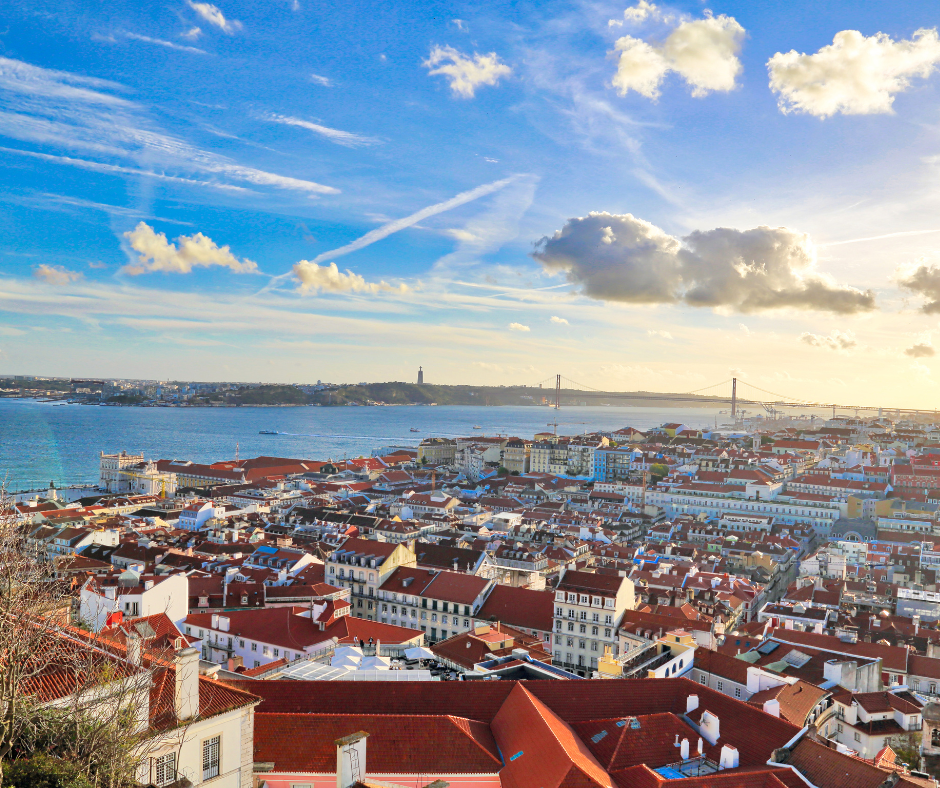

Portugal is an increasingly attractive destination for women considering relocating, retiring, or living part-time, offering a safe, welcoming, and enriching environment. The country’s diverse regions cater to different lifestyles, making it suitable for women with children as well as those living alone.
Lisbon, with its vibrant culture, excellent schools, and extensive expatriate community, is perfect for families. Porto offers a blend of tradition and modernity, with family-friendly neighborhoods and a supportive community.
The Algarve, adored for its beautiful beaches and relaxed pace, provides a safe and serene setting for retirees and solo travelers alike. The Silver Coast, with its charming towns and lower cost of living, is an excellent choice for those seeking tranquility and community spirit.
Portugal’s high-quality healthcare, efficient public transportation, ease of foreign property ownership, and rich cultural heritage make it an ideal place for women to enjoy a fulfilling and balanced lifestyle. Embrace the opportunity to explore Portugal’s picturesque landscapes, vibrant cities, and warm communities, and start writing a new chapter of your life in this beautiful country.



